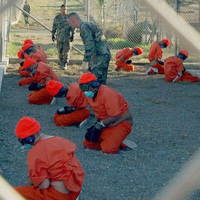Almost as soon as President Barack Obama took office, a chorus of commentators began to demand the closure of the detention facility at Guantanamo Bay, in the hopes of ushering in a fundamental change in U.S. policy: ending the so called "war on terror" and the preventive detention regime, exemplified by the facility, that it had spawned. If one of President Obama's first national security decisions was to order the closure of the facility within one year, the president's decision was more symbolic than substantive. Contrary to the expectations of many Bush critics, nothing in that order would end the preventive detention regime that provided the substantive foundation for the existence of Guantanamo. Instead, the new president left open the fundamental question of whether he would retreat from the assertion of wartime, preventive detention authority. Observers next turned their hopes to ongoing litigation assessing the legality of the continued preventive detention of suspected terrorists. The U.S. detention policy under the Bush administration was built around the concept of the "enemy combatant." The term was used to denote individuals who were enemy operatives subject to preventive detention, but unable to claim the benefits of the Geneva Convention that protects prisoners of war.
Yes, America, You’re Still at War

